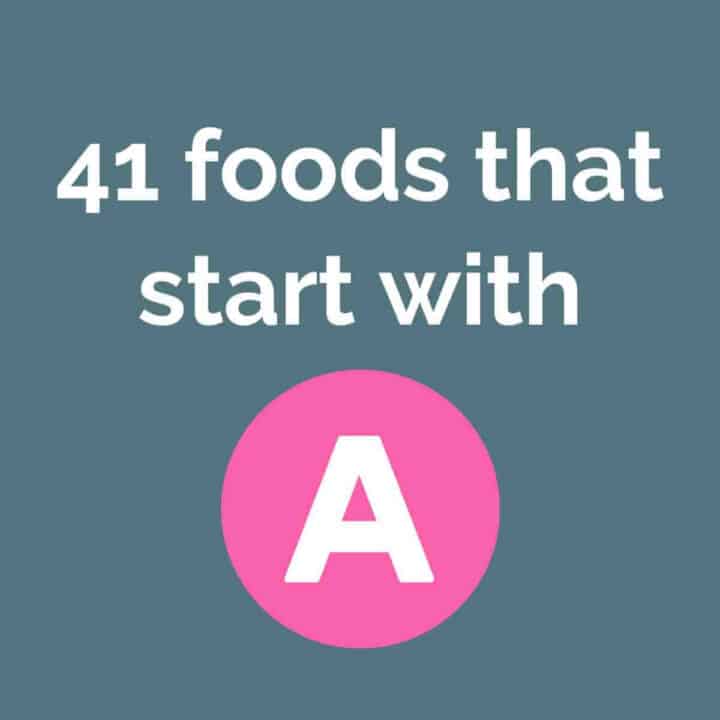A healthy diet should provide all the nutrients a child needs. The American Academy of Pediatrics recommends vitamin D as the only supplement for newborns.

Ever feel overwhelmed with all the different supplements on the market? Not sure which to choose? Should you even give your child supplements at all?
The truth is that the information out there is pretty contradictory. Some sources say supplements are a "must-have" while others strongly disagree with giving any.
The generally accepted view is that healthy and full-term infants and children should get all their nutrition from food. Preterm infants and children with different health issues are a different story and supplements for them will be covered in one of our future blogs.
Nutritionists strongly recommend that all nutrients come from "real" food. However, sometimes it is inevitable that your normal diet lacks certain nutrients – whether for geographical reasons, weather, available produce or lifestyle habits. These nutrients need to be supplied alternatively.

Vitamin D
American Academy of Pediatrics (AAP) recommends vitamin D as the only supplement for newborns until the age of 1 year (at least). It is the one necessary vitamin typically not provided sufficiently in breastmilk. And while it can be found in food, it's usually only in small amounts.
Recent studies show that most children's diets do not provide enough – particularly because the amount found in food is pretty low. Meanwhile, even though the body can make it with enough exposure to sunlight, too much exposure is especially dangerous for babies.
Recommendations
Current recommendations for children under 1 year of age are 400 IU per day (International Units – the measurement used for vitamin D). For older children, recommendations are slightly higher – 600 IU. In general, there's no difference in recommendations between breastfed and formula-fed babies. The only exception is that the formula you buy should have vitamin D already added. So babies drinking 32 oz or more of formula per day shouldn't need supplementing.
The best choice for vitamin D supplements for children under the age of 3 are liquid supplements. One drop usually contains the required amount of 400 IU. Chewable ones are a potential choking hazard for children under the age of 3 and are considered safe only after this age.
Vitamin K
Vitamin K is mandatory for newborns. It is usually given intramuscularly (i.e. as an injection) to newborns immediately upon birth in the hospital to help healthy blood clotting. Babies do not get enough vitamin K from their mothers during pregnancy which can lead to "vitamin K deficiency bleeding" if not supplemented at birth.
If parents refuse the vitamin K shot for their newborn in the hospital, it is highly recommended that babies receive it orally and in three doses:
- At birth
- 3-5 days after birth
- 4 weeks after birth
The shot is much more effective though, as it is absorbed so quickly. One injection can last for several months and allow the baby to build up vitamin K storage until the age of 6 months. If refusing the shot and formula feeding, you should discuss this with your pediatrician.
Some newer studies have looked into the need to continue daily supplements of vitamin K alongside vitamin D for the first 6 months. However, for now, that doesn't appear to be necessary.
Omega-3
Omegas are a hot topic at the moment and are considered one of the most important nutrients to promote brain development. However, their supplementation is generally not required for breastfed or formula-fed babies as both of these contain sufficient amounts for babies under the age of 1.
Once your baby is eating solid food and getting less and less of their nutrition from breastmilk or formula, it's a good idea to make sure their diet includes fatty fish (e.g. salmon) at least twice a week. Nuts and seeds such as walnuts, linseed or flaxseed are also a source of omegas although the usability is far less than from the ones in fatty fish.

It might also be helpful to look out for foods that are fortified with omegas, mainly DHA, like milk and eggs to ensure that your baby is really getting enough of this important fatty acid.
Supplementing should only be necessary if you are determined for your baby to be vegan or vegetarian – in which case you should be discussing with a nutritionist or with your doctor.
Probiotics
For healthy infants who are either breastfeeding or are using a formula that contains probiotics, supplementation is not necessary. The exception from this is babies who have taken antibiotics for whatever reason. If this is the case your pediatrician/nutritionists will discuss this with you for your baby.
Babies exclusively on solid foods and without any probiotic or fermented foods could benefit from supplementation. Probiotic foods include yogurt, kefir, kombucha, and sauerkraut. Their main purpose is to maintain healthy gut flora. The gut flora needs to have enough "healthy bacteria" to fight off illnesses and prevent constipation. Ideally, your baby will be eating food containing probiotic bacteria. If this isn't possible supplementation is helpful.
Iron
Iron is one of the minerals that we need to watch out for once your baby's diet starts to contain solids. When healthy term babies are exclusively breastfed until the age of 4 months, iron deficiency is highly unlikely. If your child is formula-fed you should choose an iron-fortified formula until solids are introduced.
When infants who are exclusively breastfed reach around 4 months of age they run out of iron reserves built up in the womb. If high-iron solid food is not yet introduced AAP recommends liquid iron supplements, but iron-fortified formula does the job too.
However, once the diet starts to rely on solids it can still lack iron. Often your baby's diet will not contain the recommended amount of meat, seafood, dairy, fruits, vegetables, and healthy fats (our meal plans have been designed with iron requirements in mind). This is especially important for babies who are vegetarian or vegan since these types of diets restrict foods that contain the highest amounts of both total iron and the bioavailable iron (the type of iron which the body absorbs most easily).
The best option to ensure that your baby gets enough iron is a healthy, well-balanced diet, containing foods from all food groups. To enhance the absorption of iron in the body it is also helpful to eat foods high in iron with foods high in vitamin C. The vitamin C enhances the availability of iron in the body.
If an iron-rich diet is not available and iron requirements cannot be met then supplementation with liquid iron or chewable tablets can be helpful.
Calcium
Calcium is one of the nutrients whose low intake from birth leads to consequences far later in life. Osteopenia and osteoporosis are diseases of the bones which manifest much later in life due to the fact that calcium intake was low in childhood and up to the age of 25 years (mainly affecting women). While breast-milk and formulas fulfill the requirements for calcium during the first 6 months, once the baby's diet includes also solids it should also include calcium-rich foods.
By the end of the first year, a diet that introduces solid foods containing calcium (e.g. yogurt, kefir, fortified grains) is sufficient to fulfill calcium needs. Once the child reaches 1 year of age, calcium recommendations become higher and to fulfill these needs the American Dietetic Association (ADA) recommends 2-3 servings per day of dairy or calcium-rich substitutes such as fortified breakfast cereals or fortified juices.

If it's hard to meet these requirements for any reason, calcium supplementation is the last option. Assuming a baby's diet already contains some amount of calcium, supplementing with 200-500 mg is typically enough.
Supplement Selection
While there's no definitive "best" supplement for any micronutrient, in general, it's good practice to choose one with as few ingredients as possible (ideally just the micronutrient itself) and with no added preservatives.
Resources
- Wagner CL, Greer FR, the Section on Breastfeeding and Committee on Nutrition (2008) Prevention of Rickets and Vitamin D Deficiency in Infants, Children, and Adolescents. Pediatrics. 122 (5).
- Weydert JA (2014) Vitamin D in Children's Health. Children (Basel). 1(2), 208 - 226.
- American Academy of Pediatrics Committee on Fetus and Newborn (2003) Controversies Concerning Vitamin K and the Newborn. 112(1)
- Witt M, Kvist N, Hørby Jørgensen M, Hulscher JBF, Verkade HJ (2016) Prophylactic Dosing of Vitamin K to Prevent Bleeding. Pediatrics. 137 (5).
- Newberry SJ, Chung M, Booth M, Maglione MA, Tang AM, O’Hanlon CE, Wang DD, Okunogbe A, Huang C, Motala A, Timmer M, Dudley W, Shanman R, Coker TR, Shekelle P. Omega-3 Fatty Acids and Maternal and Child Health: An Updated Systematic Review. Evidence Report/Technology Assessment No. 224. (Prepared by the RAND Southern California Evidence-based Practice Center under Contract No. 290-2012-00006-I.) AHRQ Publication No. 16(17)-E003-EF. Rockville, MD: Agency for Healthcare Research and Quality; October 2016.
- Hashemi A, Villa CR, Comelli EM. (2016) Probitics in early life: a preventative and treatment approach. Food Funct. 7(4), 1752-1768.
- Baker RD, Greer FR, The Committee on Nutrition (2010) Diagnosis and Prevention of Iron Deficiency and Iron-Deficiency Anemia in Infants and Young Children (0–3 Years of Age). Pediatrics. 126 (5).
- Dietary Guidelines for Americans 2015 - 2020





Comments
No Comments